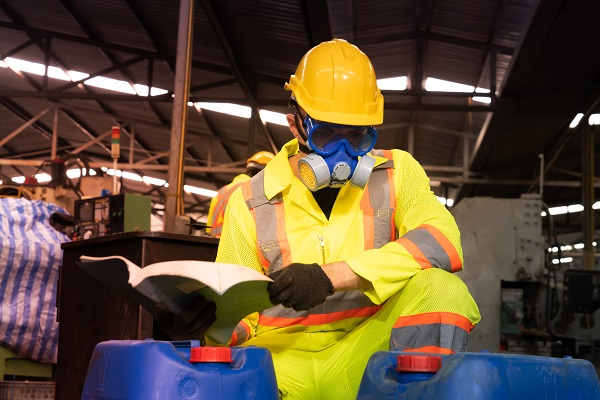Work Injuries & Illnesses from Hazardous Chemical Exposure

Some of the most common work-related injuries and illnesses involve exposure to hazardous chemicals in the workplace. Each year, an estimated 13 million workers nationwide get sick or injured due to exposure to hazardous chemicals, according to the Centers for Disease Control and Prevention (CDC).
In many cases, sick or injured workers are often eligible to receive workers’ compensation benefits while recovering from a hazardous chemical exposure injury or illness. However, getting such benefits can be much harder than many realize.
Employees must understand why and how these work-related illnesses or injuries happen on the job. They should also know their potential legal options if they were exposed to hazardous chemicals at work and need help recovering their losses. That’s why the Rhode Island workers’ compensation attorneys at the Law Offices of Deborah G. Kohl want to meet with you. To learn more about how we can help you, contact us today for a free consultation.
Common workplace hazardous chemicals
Injuries and illnesses caused by exposure to hazardous chemicals in the workplace can involve a wide range of chemicals, including:
- Arsenic
- Asbestos
- Benzene
- Cadmium
- Lead
- Mercury
- Zinc
Many other chemicals can cause severe injuries or illnesses depending on the type of chemical, the amount involved, and how long someone was exposed to it. This is why sick or injured workers need immediate medical attention if they suspect they have come into contact with dangerous chemicals. You can never be too careful when it comes to your health.
Why workplace hazardous chemical injuries occur
Most work-related injuries or illnesses caused by hazardous chemicals occur in one of three ways:
- Breathing in a hazardous chemical.
- The hazardous chemical comes into direct contact with the skin.
- Exposure to a hazardous chemical for a long time over many years.
Injuries and illnesses due to hazardous chemical exposure
Common, severe illnesses and injuries caused by exposure to dangerous chemicals include:
- Brain injuries, including brain damage, often due to long-term exposure to hazardous chemicals over many years.
- Breathing disorders, including asthma, due to lung damage.
- Cancer, including lung cancer and leukemia.
- Neurological disorders (damage to the central nervous system), including Parkinson’s disease.
- Skin conditions, including rashes, burns, and other injuries caused by dangerous chemicals coming into direct contact with the skin.
- Vision-related injuries, including partial or total blindness.
How negligence can play a role
Many work-related injuries and illnesses caused by hazardous chemicals occur due to negligence in the workplace. This includes:
- Improper ventilation in the workplace results in dangerous chemicals not being removed from the air in a workspace.
- Improperly storing hazardous chemicals.
- Not providing employees with proper protective equipment, including masks, gloves, and more advanced personal protective equipment (PPE).
- Not providing workers with the proper training to safely handle hazardous chemicals.
How a Rhode Island workers’ compensation attorney can help
Workers’ compensation claims involving hazardous chemicals often become complicated legal cases. In addition, sick or injured workers might be able to obtain additional financial compensation in addition to workers’ comp benefits (in certain circumstances).
This is why it’s critical that sick or injured workers talk to an experienced workers’ compensation lawyer right away. The knowledgeable legal team at the Law Offices of Deborah G. Kohl has been helping people get the benefits they deserve for years in Rhode Island and Massachusetts. When you have us on your side, you can put yourself in a position to recover the money you deserve.
Learn more about your legal rights. Contact us and schedule a free consultation with a Rhode Island workers’ compensation attorney you can trust to put your best interests first. We have three offices conveniently located in Rhode Island and Massachusetts and handle workplace injury claims in both states.

